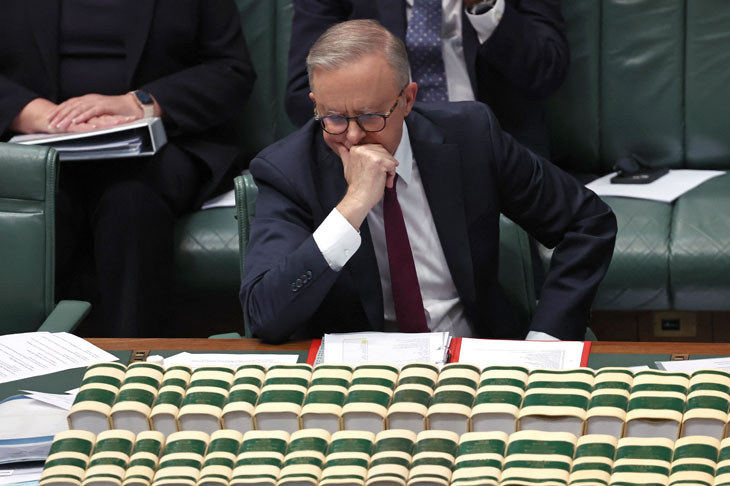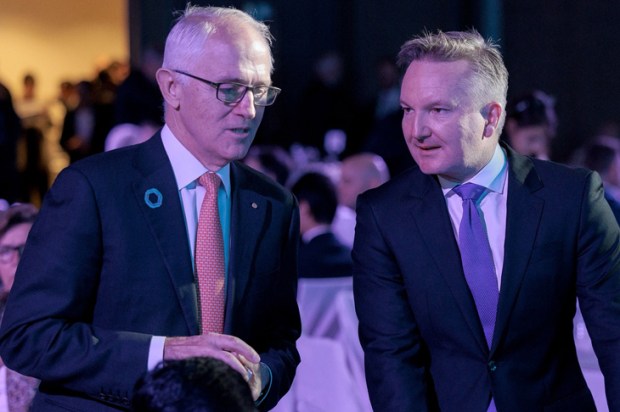Did you know that only 2 per cent of qualified electricians in Australia are women? This is a really bad thing and needs to be rectified according to the National Skills Commission. We are going to need more electricians, so women really need to step up to the plate – well, according to some zeitgeist logic.
You do probably know that only 2 per cent of childcare workers are men. Pfff – who cares? We are going to need more childcare workers but no one bleats about the gender segregation of this particular occupation. And does anyone ever bother to mention that 98 per cent of garbage collectors are men or that over 95 per cent of workplace deaths are male workers?
The Albanese government has just received the final report of the Women’s Economic Equality Taskforce chaired by former advisor to Paul Keating, Sam Mostyn AO. The best thing that can be said about the report is that it is now complete and we can resume sensible policy discussion – because sensible policy discussion it’s not.
Indeed, it’s just another example of the workings of identity politics in which women are downtrodden and discriminated against and the government must do something about this appalling state of affairs. This is achieved by giving even more preference to women, handing out more subsidies to activities affecting women and trashing the less favoured group, men.
Mind you, the practical implications of the measures are cleverly disguised as being good for the economy. Indeed, the first page of the report screams this point: ‘A 10-YEAR PLAN TO UNLEASH THE FULL CAPACITY AND CONTRIBUTION OF WOMEN TO THE AUSTRALIAN ECONOMY.’ (Capitals in original.)
Of course, it’s a weird underlying assumption when you think about it. Forget what women might want to do with their lives and the voluntary roles they may prefer to fulfill. It’s all hands to the wheel to power the economy. For this reason, women must take up full-time employment as soon as babies are born and plonked in childcare centres.
It’s all very Rosie the Riveter and ‘We can do it’. But let’s not forget Rosie was part of a war effort, not normal life. The closer parallel is with the Soviet Union in which women were compelled to work full-time and leave their babies, to be minded by others. It was for the benefit of the economy, to help the state.
But the activists in charge of women’s issues here have no problem with this one-eyed view of the world. Indeed, Mostyn talks like some female version of Churchill – OK a very poor version – when she declares that, ‘We have arrived at a moment of consequence where a genuine commitment to respect women, and valuing and nurturing their economic contribution by removing systemic barriers, is vital.’ Gosh, it’s a bit like fighting on the beaches.
(I deliberately refrain from calling these activists feminists. ‘Free to choose’ was always a centrepiece of the feminist credo, be it in work or other activities such as caring for children and others. For this reason, I am happy to call myself a feminist; it’s just dictatorial activism I reject.)
Now these reports always involve the citing of a very, very big number and this one is no exception. Evidently, $128,000,000,000 is ‘the value to the Australian economy that can be realised by purposely removing the persistent and pervasive barriers to women’s full and equal participation in economic activity’. Needless to say, this number is just made up, but its size is designed to impress.
Of course, removing barriers doesn’t come cheap and government must spend even more money directed towards women. Indeed, it’s close to impossible to list the vast array of demands made by the Taskforce, handily classified as immediate and long-term.
Even so, a decade is seen as the limit during which every action must be taken.
Free, universal centre-based childcare is seen as essential, although weirdly it is recommended that the activity test be abolished. That’s hard to square with maximising the economic potential of women. (Similarly, the Taskforce’s advocacy of the extension of the Single Parenting Payment to those with children up to the age of 14, up from 8, is all well and good but goes against encouraging workforce participation.)
Paid parental leave is another area seen as vital by the Taskforce. The aim is to have 52 weeks of earnings-related leave, although the funding of this is not discussed in any detail. Obviously, paid parental leave must attract superannuation contributions too because (government) money grows on trees.
To tell you the truth, I could barely make it to the end of the numerous, wordy re-commendations that very often involved a new committee, more legislation and more government spending. It was like walking through treacle.
Can anyone really take a sentence like this seriously: ‘Resource critical women’s advocacy work, such as the National Women’s Alliance or similar models, to provide a consultative mechanism to elevate the voices of diverse women and girls around the country.’ I don’t even know what that means.
But here’s the main thing about this report you should appreciate. At its heart, it goes completely against the obvious proposition that GDP is not the only thing that matters. In fact, most progressives will readily sign up to this, while telling jokes about economists knowing the price of everything and the value of nothing. Women (or men, for that matter) are not here just to go to work and make money. Many other aspects of life are important.
And here’s something else that this report ignores: many people prefer to behave as part of cooperative partnerships, as married couples. They see household income in joint terms and seek to drive a balance between work and family. They want to actively raise their children, to be part of their lives.
These women don’t see men as their enemies or vice-versa. And women have sons as well as daughters. They don’t want to see their sons treated as second-class citizens because of some Marxist-inspired view of identity politics as illustrated by the Women’s Economic Equality Taskforce report.
Now Albo may think he’s on a winner with this stuff; I’m not so sure. And to illustrate that he doesn’t even understand the economics of pushing higher female workforce participation through additional subsidies, he claims this will lift productivity. It should lift production but it almost certainly would reduce productivity. If you want to play the ‘it’s good for the economy’ card, it’s advisable to understand the subject in the first instance.
Got something to add? Join the discussion and comment below.
Get 10 issues for just $10
Subscribe to The Spectator Australia today for the next 10 magazine issues, plus full online access, for just $10.
You might disagree with half of it, but you’ll enjoy reading all of it. Try your first month for free, then just $2 a week for the remainder of your first year.














Comments
Don't miss out
Join the conversation with other Spectator Australia readers. Subscribe to leave a comment.
SUBSCRIBEAlready a subscriber? Log in